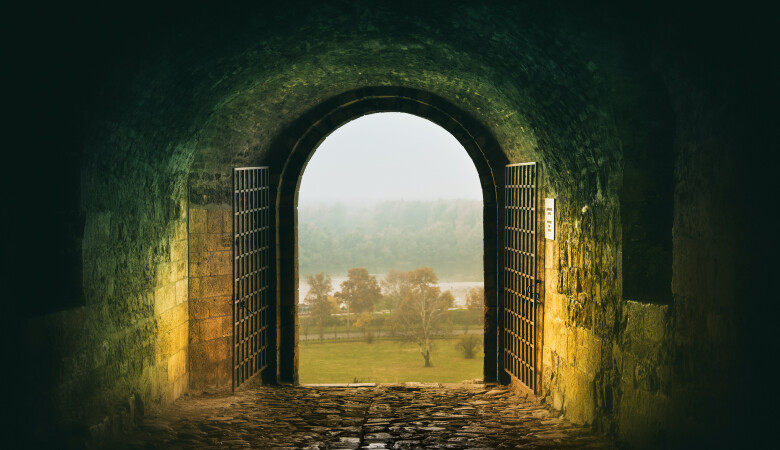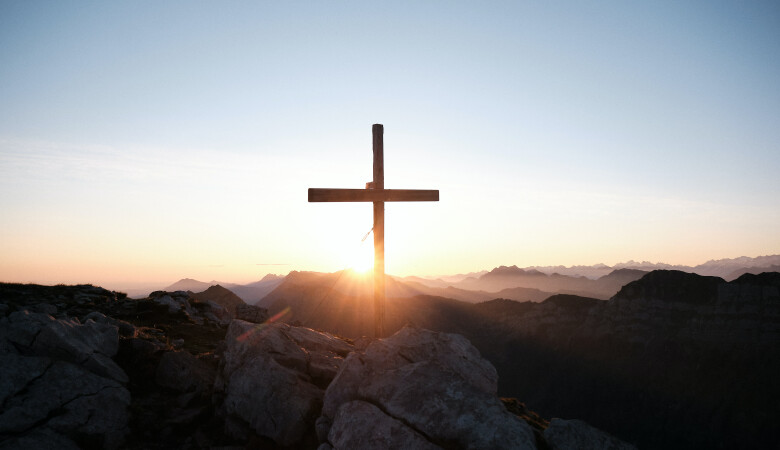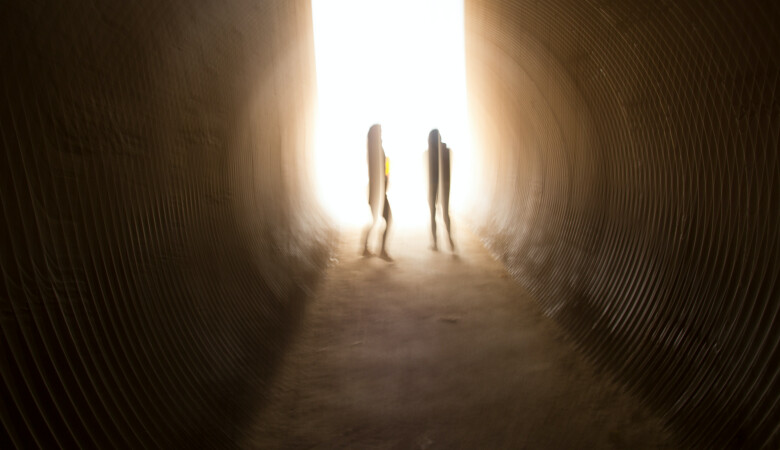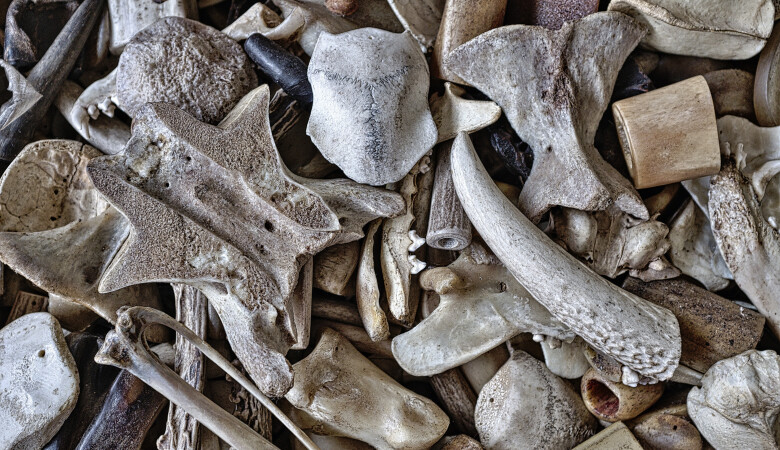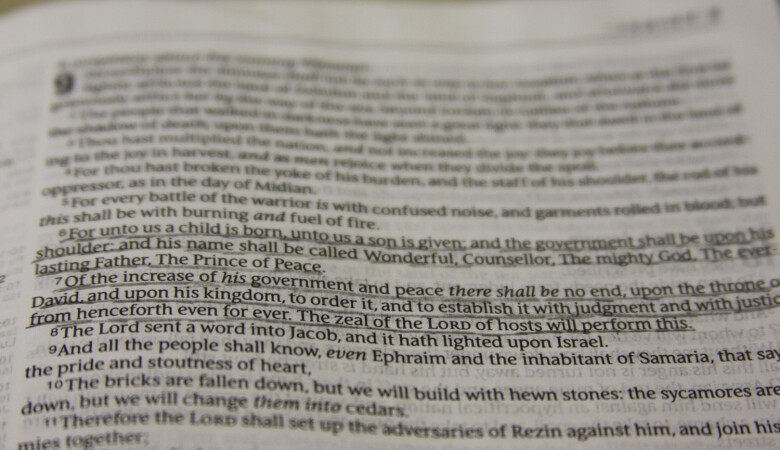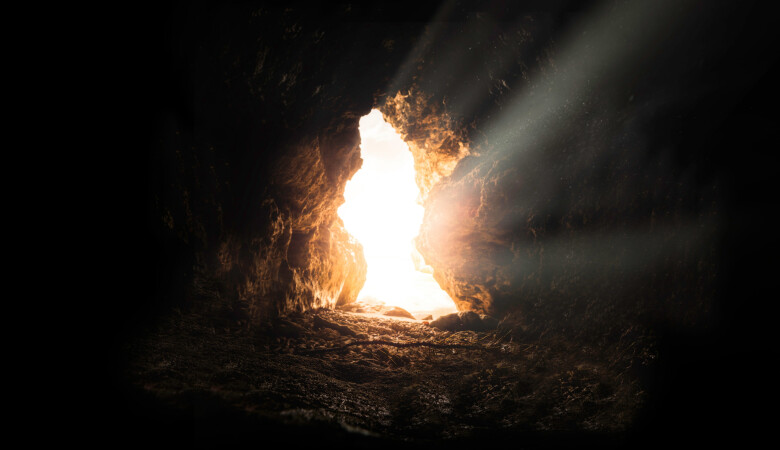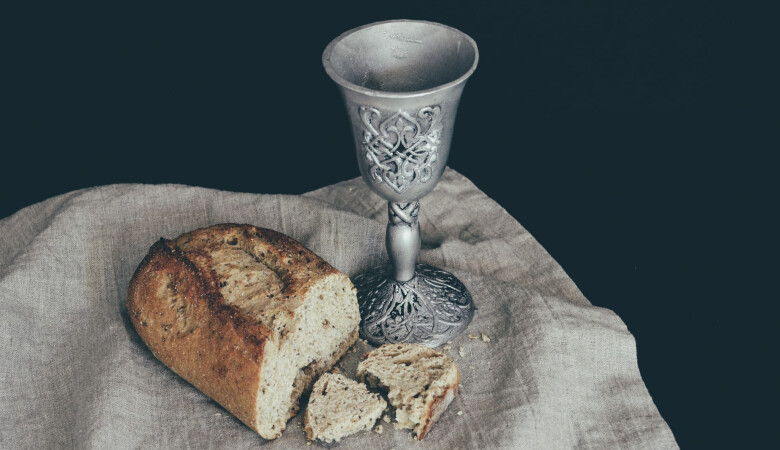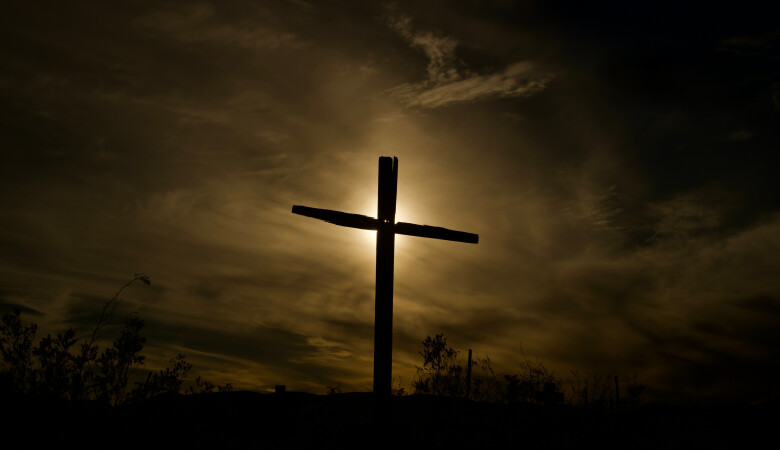The Cross of Christ: Ongoing Power for the Journey of Salvation
March 16, 2008 | Andy Davis
1 Corinthians 1:1-18
Resurrection of Christ
sermon transcript
The Cross: Ongoing Power for “Us Who are Being Saved”
Every time that Charles Spurgeon ascended the pulpit, as he went up the stairs, he said, “I believe in the Holy Ghost. I believe in the Holy Ghost. I believe in the Holy Ghost,” again and again, as he went up the stairs. This man may have been the most talented, naturally talented, public speaker that the church has ever seen. Incredible genius. It was said that he was able to carry seven different thoughts going on in his mind at the same time while preaching. I cannot do that. I'll start to make grammatical errors if I try to do anything like that. But he came up, despite all of his talents, his incredible linguistic ability, his knowledge of the Word of God, despite all of that, he said again and again, “I believe in the Holy Ghost. I believe in the Holy Ghost,” because he wanted to focus on the power of God the Spirit in him and not in his own abilities because he knew that apart from Christ, he could do nothing of lasting consequence.
I would say there's not a Sunday that goes by that I don't look up at the wooden cross over my head there in the latticework up there and ask the Lord to overcome my own weaknesses and my sin, and enable me to preach to you. I've been here almost 10 years, I'm still not used to it. I don't think I'll ever get used to it. I'm not used to speaking to 400 people, 400 of my closest friends, about the things of God. And the devil is active, and he just hurls fiery darts at me while I sit in the pew and say, “What right do you have?” What's the answer to that question? I have no right. I have no right to get up week after week and unfold the scripture to you. My sufficiency comes from Christ, or it comes from no one at all. I have no right to preach the Word of God apart from the work of Christ on the cross, and I remember that, some weeks much more acutely and emotionally than others.
I look to the cross of Jesus Christ again and again, and that's my message to you this morning, is that the moment that you are saved, that you look to the cross, Jesus Christ and him crucified, that was just the first time you did so. For the rest of your life, you need to look to the cross again and again and again. And the cross of Christ will never lose its power to continue that saving work it began in you from the start. But you and I both need to be conscious of it. We need to be aware of our dependence on Jesus Christ. We need to know that we need the cross. And we're not just repentant believers the first moment we walk the aisle, or at a crusade, or when someone led us to Christ, that that was it, and from then on, we were done. We need to come back again and again, and we will find the inexhaustible power of God for the salvation of people like you and me in the cross of Christ.
So we're looking at 1 Corinthians 1:18 this morning just as a starting point. I'm not going to give a thorough verse-by-verse exposition of it, though I'd love to do that. But what I wanna do is I wanna take us on themes of the cross, and what the cross does for us as believers, and how we continue to be dependent on the cross of Jesus Christ in some certain specific ways for the rest of our Christian lives.
Our Salvation is a Journey
It says in 1 Corinthians 1:18, “The message of the cross is foolishness to those who are perishing, but to us who are being saved it is the power of God.” Our salvation, as we have emphasized here in this church, is a journey. It's an infinite journey. And I think this verse strengthens that. The Greek participle here is best translated in this way: “To us who are being saved, the cross of Christ is the power of God, to us who are in the process of salvation.” Parallel construction in the same verse: “To those who are perishing, to those who are in the process of perishing for their sins.”
And so therefore, the message of the cross is foolishness to those who are perishing, but to us who are being saved it is the power of God. Reminds me of those two roads that Jesus spoke of in the Sermon on the Mount. In Matthew 7, he said, “Enter through the narrow gate. For wide is the gate and broad is the road that leads to destruction, and many enter through it. But small is the gate and narrow the road that leads to life, and only a few find it.” That's journey language. Those are two different roads, they lead to two different destinations, and they come down to us here in this verse.
To those who are on the road to hell, those who are in the process of perishing, the message of the cross is just foolishness. It makes no sense. Why would some dead Jewish carpenter 2,000 years ago have any relevance to my life today? It's foolishness. To the urbane philosopher back in Paul's day, those that lived in Athens and debated all the latest ideas in human philosophy. The message of the cross was just foolishness. It made no sense why the only God, the Creator God, would save the world in this way. It made no sense. But for us who are being saved now, for we who are in the process of salvation, it is the power of God. It continues to be the power of God for your salvation, and you must come to it again and again.
Now, we've seen the constituent parts, the component parts of salvation: Justification, sanctification, glorification. We've learned these. Justification, the beginning of the Christian life, when by faith, you see yourself to be a sinner, you know that you have no hope, that you're most certainly going to go to hell when you die. If it weren't for the saving work of Christ on the cross, you would. And you look to Christ, to his death on the cross, to his bloodshed on the cross for your forgiveness. And you believe it's ample forgiveness, it's more than enough grace for all of your sins. And you trust in him, and you call on him and say, “Lord, save me,” in whatever way you did. And at that moment, you were justified, you were forgiven of all of your sins. You're given a gift of perfect righteousness that will stand up on Judgment Day. You were adopted into the family of God. You were given the indwelling Holy Spirit. You were given an inheritance that can never perish, spoil or fade, and no one can take it from you. All of these things were once for all, and nothing can change it. So when I say that salvation is a process, a journey, I haven't forgotten all of that. But that's not all there is.
The Lord left us here on earth that we might be progressively gradually sanctified, that we might grow in grace in the knowledge of Christ, becoming more and more like Jesus in our thoughts and our actions, to act like him in the world, to be the light of the world. And that's sanctification.
Salvation Journey Needs Power
And my central message to you today is you need to go back to the cross again and again for sanctification. That's where the power for this journey comes from, this infinite journey, the cross of Jesus Christ. The fact that God has determined to save you in Jesus. Philippians 1:6, “That he who began this good work in you will most certainly carry it on to completion until the day of Christ Jesus.” But he does it through the cross, not apart from it. That is the power of God for our salvation. And you need that power. Don't you ever feel yourself weak in your salvation journey? Don't you ever feel like you can't take another step? Like sin is gonna master you the rest of your life? It's a lie. You're not a slave to sin, but that's the kind of lie, and only the cross of Christ can give you the power to keep going in the Christian life. And so it is for you the power of God for salvation right to the end.
Ongoing Cleansing from Sin and Guilt
Sanctification: A Journey into our Own “Heart of Darkness”
Now, I wanna look at seven aspects of the cross of Christ and how we need to go back to the cross for each of these. My feeling is the more you think about these seven that I give you, you're gonna find others as well, that's fine. Whatever reason caused you to go back again and again to the cross, may it be. But start with these. Let's begin with ongoing cleansing from sin and guilt. For a long time, I struggled with the book of 1 John, especially in chapter 3, there's a specific verse that says, “In him, there is no sin. Anyone in him does not sin,” this kind of thing. I'm thinking, “Oh, no! I'm in trouble.” Because I continue to sin. And it's so perfect. But then as I noticed that there were no sinless Christians around me, I thought either I have to have a new way of understanding that verse, or there's this secret enclave of Christians hidden in some hills somewhere, and those 179 people are the only ones Jesus is saving because none of the Christians I've met have ever been perfect. So there must be a different way of understanding, but I still struggled with that verse.
1 John 3 seems so perfectionistic. “In him, there is no sin. No one in him sins,” and all this kind of absolute language. Until I understood 1 John 1:7. 1 John 1:7 was a release, a gate opened, and I understood better the whole message of 1 John. And 1 John 1:7 says this, “If we walk in the light, as he is in the light, we have fellowship with one another, and the blood of Jesus purifies us from every sin.” Wow! The blood of Jesus, in an ongoing sense, purifies you from every sin as you walk in the light.
So that means it's possible to walk in the light as he is in the light and need an ongoing work of purification in your life. And you know you need it. I've likened it before to standing in a hot cleansing shower of grace. And the water of grace just running over your body as sin comes out of its pores, and you are immediately cleansed from all sin. Walking in the light as he is in the light.It seems to me that sanctification is somewhat a guided tour through my own heart of darkness, as the Holy Spirit shows me just how much I needed a savior, how much sin there is still in me. And I believe that the most godly men and women have an acute sense of their own sinfulness, an increasing sense of it, and how much they hated and how much they wanted out. But it's not like they have this sense of perfectionism coming over them as they grow in their Christian life.
Look in the Bible, the godliest people in the Bible always had an acute sense of sinfulness. Like Job, after his encounter with God, he said, “I despise myself and repent in dust and ashes,” Job 42:6. David said, “I know my transgressions and my sin is ever before me,” Psalm 51:3. Daniel said, “We have sinned and done wrong. We have been wicked and have rebelled. We have turned away from your commands and laws,” Daniel 9:5. Ezra said, “Oh, my God! I am too ashamed and disgraced to lift up my face to you, my God, because our sins are higher than our heads and our guilt has reached to the heavens,” Ezra 9:6. And then the Apostle Paul at the end of Romans 7, “What a wretched man I am! Who will rescue me from this body of death?” See, these folks, they were all godly, and they had an acute sense of their own sinfulness.
Satan The Accuser: Seeks To Keep Us Out Of Action
Now, what Satan the accuser seeks to do is to use that sense of guilt to disqualify you from doing the very good works that God has ordained that you should walk in them. That you should not share the Gospel with a coworker, that you should not grow in your prayer life, that you should not disciple your family, or that you should not do various good works that God has ordained because you're not worthy. No, you're not worthy. Never have been, and you never will be. That's exactly what Moses said. “Who am I that I should go to Pharaoh?” And God's answer? A beautiful non sequitur, “I will be with you.” “Who am I that I should go?” “I will be with you.” The question is irrelevant. “I will be with you. I will overcome your inadequacy. I'll overcome your weakness. I will overcome your guilt and your sin.” Where are we gonna get that cleansing? We're gonna get it from the cross of Christ. Do you feel guilty today of sin? Is Satan the accuser accusing you today of sin? And notice his wickedness in this, the very one who enticed you to it, suddenly becomes righteous and accuses you of it.
One Simple Answer: Come To The Cross Again
The cross of Jesus Christ is the only answer. Hebrews 9:14 says, “How much more, then, will the blood of Christ, who through the eternal Spirit offered himself unblemished to God, cleanse our consciences from acts that lead to death, so that we may serve the living God!” Do you need a conscience cleansed from acts that lead death and come again to the cross of Christ? Confess your sin. And if you confess your sin, he is faithful and just, and will forgive you your sin, and cleanse you from all unrighteousness.
Just a few moments ago, we sang that beautiful hymn by William Cowper, “There is a Fountain Filled with Blood.” William Cowper is a fascinating man, 18th century believer, lived in the same time as John Newton and Wesley and the others. Struggled all his life with deep feelings of guilt and unworthiness and with mental instability as a result, even insanity. He struggled with the temptation of suicide. Some time, he resolved to do it, but God providentially kept him from it. And he struggled so much with feelings of guilt, a guilty conscience, that it was only when he came to Romans 3, and he understood the death of Jesus Christ, propitiation, the atoning sacrifice of Christ, Romans 3:25 and 26, that he realized that he, a sinner, could be clean before God.
And so he wrote this incredible hymn, “There is a fountain filled with blood drawn from Emmanuel's veins and sinners plunged beneath that flood lose all their guilty stains.” Second verse, “The dying thief rejoiced to see that fountain in his day, and there may I, though vile as he, wash all my sins away. Dear dying Lamb, Thy flowing wounds will never lose its power, 'til all the ransomed church of God be saved, to sin no more.” Do you not see how these verses are written for Christians as they continue in their own journey, feeling guilty for their sins? “'Til all the ransomed church of God be saved, to sin no more,” that's heaven. There, at last, we will be perfect. Until then, come to the flowing wounds and to the grace that the cross of Jesus Christ supplies.
Ongoing Welcome in Prayer
Prayerlessness is a Great Danger
We also find at the cross an ongoing welcome in prayer. One of the corollaries of feeling guilty is that we stop praying. The very thing that Satan wants us to do is to stop praying. John Bunyan put it very plainly. He said, “Prayer drives out sin, or sin drives out prayer.” Well, if sin has been driving out prayer in your life, come back to the cross. Come back to the blood of Christ. Realize this: If you feel fit for prayer when you've done well in your Christian life, been obedient, done a bunch of good works, now you can pray. But you feel unworthy to pray when you haven't done good works, when you've sinned, etcetera, you don't understand your standing before God. You don't know that it was never based on your good works, never based on your righteousness, but only on the cross of Christ.
God’s Holiness Daunting
Psalm 24 says, “Who may ascend the hill of the Lord? Who may stand in his holy place? He who has clean hands and a pure heart.” These things we do not naturally have. We don't naturally have clean hands and a pure heart. These are the ones that may stand before God in prayer. And therefore, if you want an ongoing welcome in the presence of almighty God in prayer, you're gonna get it only through the cross of Christ.
Christ’s Cross… Not Our Works
It says in Hebrews 10, “Therefore, brothers, since we have confidence to enter the Most Holy Place by the blood of Jesus, by a new and living way opened for us through the curtain, that is, his body, and since we have a great priest over the house of God, let us draw near to God.” “Let us draw near,” it says in Hebrews 4, “To the throne of grace.” Let us draw near on the basis of the cross of Christ, draw near to find mercy and obtain grace to help us in our time of need. The welcome, the ongoing welcome in prayer comes from the cross of Christ.
Ongoing Protection from Pride and Worldliness
Paul Dealt Constantly with Pride
We also get ongoing protection from pride and worldliness. In Galatians 6:14, it says, “May I never boast except in the cross of our Lord Jesus Christ, through which the world has been crucified to me, and I to the world.” You see, the cross isn't just available to cleanse us of existing sin patterns. It's to keep us safe from sin itself, to give us the power to stand in the day of temptation and to say no. But the cross is especially fitted to fight specific sins like pride and worldliness. That's why it says, “May I never boast except in the cross of Christ.” Oh, how we struggle with pride! Isn't it a bit ironic? When you look at yourself, really, in the mirror of God's perfect Word and in the light of his perfect holiness, that we should ever boast about anything at all. We are sinners; God is holy. Why would we ever boast about anything? But yet, we're proud.
And Paul renounces all human boasting in Galatians 6:14, “May I never boast except in the cross of our Lord Jesus Christ.” I think the Apostle Paul struggled with boasting. He was one of those Hebrew of Hebrews, a Pharisee of Pharisees, one of these ladder-climbing Jews who was seeking to ascend into the heavenlies by his own good works, by his Judaism, by his law-keeping. And so I think he always struggled with boasting. He mentions the theme of boasting again and again in his letters. I think it was an ongoing issue in his life, but he's come down to this: The cross of Jesus Christ destroys any ground for boasting in our lives.
I sometimes hear the boasting of people in our age, drunk with the mindset of our present age, and I shudder. We're in the midst of a political campaign. Isn't it nauseating, from a spiritual perspective, to see any candidate get up and trumpet their achievements and their qualities and their character traits? Now you say it's intrinsic to the election, if you don't do it, you won't get elected. Well, the scripture says, “Let another mouth praise you, not your own.” Wouldn't that be something? The candidates never open their mouth, but they just get somebody to come and advocate on their behalf. Well, we get plenty of that. I wouldn't mind some of the candidates never opening their mouths again, but we have a lot of boasting, all of our achievements, the great works that we've achieved.
You see it, especially I think in the athletic realm. Athletes will get up and say things like this, “I'm the greatest of all time.” I'm thinking, “My goodness.” And then the announcers, the sports announcer’s gonna do the same thing. I was watching one compilation of an athlete's achievements and the announcer in one important, so to speak, playoff game, said, “You're watching what true greatness is all about.” I'm thinking, “No. True greatness is about the cross of Jesus Christ.” So this athlete scores 20 points in the fourth quarter, who cares? Centuries later, no one will remember his name if the Lord tarries. You wanna know what true greatness is all about? The cross of Jesus Christ.
Worldliness Dies at the Cross Too
“May I never boast except in the cross of Jesus Christ,” but it says more than that, “Through which the world has been crucified to me, and I to the world.” Now, that's a battle against worldliness. The world seems empty, it seems meaningless compared to the achievements of Christ on the cross. In one afternoon, in three hours, he atoned for all of my sins, and not just mine, but a countless multitude from every tribe and language and people and nation. That's greatness. And May I never boast except in that. So what does the world have to offer to me? Satan is always trying to sell the world, just like he did to Jesus when he was being tempted. He took him up on a high mountain and showed him all the kingdoms of the world and their splendor. “All of this I will give you,” he said, “If you'll just bow down and worship me.” And Jesus said, “Away from me, Satan, for it is written, ‘Worship the Lord your God and serve him only.’” But there's no allure, there was no allure to the world as Jesus looked out on it, but to us, we struggle with it, with its power and with its possessions, and with its prestige and all of the things that it entices us with.
John Wesley in his journal, on December 23rd, 1755, he was in the dressing room with the king as he prepared to address parliament. He was in the robe chamber as aged King George II was getting ready to go address parliament. And this is what he wrote in his journal. “I was in the robe-chamber, adjoining the House of Lords when the King put on his robes. His brow was much furrowed with age and quite clouded with care. And is this all the world can give even to a king? All the grandeur it can afford? A blanket of ermine around his shoulders, so heavy and cumbersome he can scarcely move under it. A huge heap of borrowed hair, with a few plates of gold and glittering stones upon his head. Alas, what a bauble is human greatness! And even this will not endure.”
Now, last week, I said that the cross of Christ is like a prism. It takes the white light of the character of God and breaks it out into a rainbow of attributes. Well, in a similar way, the cross of Christ is like a magnifying lens. Though, if you look through it one way, it magnifies the greatness of Christ, but if you get on the other side and look the other way, it minimizes the greatness, so to speak, of every human being. It makes us small. May I never boast about myself or anything in this world, except the achievements of Jesus Christ.
Ongoing Pattern for Daily Service
Christ’s Sacrifice a Pattern for Our Daily Sacrifices
We also see in the cross of Christ when we come again and again to the cross for an ongoing pattern of daily service. How are we to serve him? God has left us in this world, how are we to serve him in this world? Come to the cross of Christ again and again to learn. 1 John 3:16-18, it says this, “This is how we know what love is, Jesus Christ laid down his life for us, and we ought to lay down our lives for our brothers. If anyone has material possessions and sees his brother in need but has no pity on him, how can the love of God be in him? Dear children, let us not love with words or tongue but with actions and in truth.” Christ's sacrifice of himself on the cross is a pattern for how we should be toward God and toward each other in our service.
One of the most influential missionary leaders in Protestant history was Count Nikolaus von Zinzendorf. He was born in 1700 in an influential German family of nobility, his father died, his mother remarried, so he was raised by a grandmother and an aunt in a godly pietistic home. And he learned German Pietism from them and was enticed and interested in the gospel, but still struggling as a young man with what his path would be in life. Struggled with his future calling. He went to Wittenberg to study law in preparation for a successful life as a government leader, but there was a pull, an attraction on him, in reference to the gospel.
Well, he went on a tour of Europe in 1719 and he was arrested, just stopped dead in his tracks by a painting of Christ in his sufferings. The painting was by the Italian artist, Domenico Feti, was entitled “Ecce Homo,” that's Pilate's statement, “Behold the man.” Look at him in his sufferings. And at the bottom of the painting was an inscription. “All this I have done for you. What are you doing for me?” Now, I think there's a bit of a danger in considering that. John Piper pointed out, “Grace doesn't create debt, it pays it.” But let's look more faithfully, I think a little more closely at 1 John 3. “This is how we know what love is,” verse 16, “Jesus Christ laid down his life for us and we ought to lay down our lives for our brothers.” That word “ought” is obligation. There's a sense of responsibility in the Christian life. “All of this I have done for you. You ought to live a certain kind of life.” We are debtors, brothers, and sisters, but not to the flesh, to live according to it.
We ought to lay down our lives for Jesus and for one another. This is the pattern of service, and this has been a powerful pull again and again in the Christian life. C.T. Studd, who was a successful athlete in his day, he was a cricketer, one of the most popular sports in his time and very, very powerful and successful at cricket, but he gave all of that up, all of his wealth, his influence to go overseas as a missionary in China, in India, and Africa. And this is what he said, “If Jesus Christ is God and died for me, then no sacrifice can be too great for me to make for him.” There's a sacrificial aspect of our daily life, the cross of Jesus Christ is the pattern of it.
VI. Ongoing Focus of Worship
Last Week: Prism
As we mentioned last time, the cross of Jesus Christ is also the ongoing focus of our worship. I don't need to belabor this, but I'm just urging you. Did you do it last week? Did you go back to the cross and look at the attributes? Did you find some others too? Did you see his holiness at the cross? Did you see his power? Did you see his righteousness and his justice there? Did you see his wrath? Did you see all of the attributes of God beautifully balanced and mixed and poured out at the cross of Jesus Christ?
Heavenly Worship is Throne-centered and Cross-centered
Now, Heaven, if you were to go there, if you were to have that opportunity that Apostle John did, of a door standing open in Heaven, and you could go up in the spirit, and at once he was in the Spirit, he went through that door, and there immediately he saw a throne and someone seated on it. The throne is the center of heavenly worship, and around that throne are 24 elders and four living creatures. There’s a very concentric field to heavenly worship. They're all around the throne all the time. The throne of God, of Almighty God, is the center of true spiritual worship.
But in Revelation chapter 5, at the center of the throne is the crucified lamb. John saw a Lamb looking as if it had been slain, standing at the center of the throne, and they're all encircling him and giving him praise. So it says in Revelation 5, verse 11-12, “Then I looked and I heard the voice of many angels, numbering thousands upon thousands, and ten thousand times ten thousand. They encircled the throne and the living creatures and the elders. In a loud voice they sang: ‘Worthy is the Lamb, who was slain, to receive power and wealth and wisdom and strength and honor and glory and praise.’” Worthy is the lamb who was slain. The cross of Jesus Christ is the focus of true spiritual worship, and it will be to the rest of our lives.
Ongoing Training in Hope-Filled Suffering
How Will You Face Suffering?
It is also ongoing training for hope-filled suffering. Jesus made many promises to us. In the Christian life, there are many promises. The promise book God, that's the scripture. How is this for a promise? “In this world, you will have trouble.” I don't see people embroidering that one and putting it up on the wall, you know? “Ah, the precious promises of God.” “In this world, you will have trouble.” Well, you will. How will you handle it? How will you carry yourself through your difficulties? The early church, it was said by Tertullian, “The blood of martyrs is seed for the church.” You know why it was seed? It's because of how the martyrs died. Justin Martyr, 2nd-century believer, became a Christian by watching Christian martyrs die. This is what he wrote, “I watched them stand fearless in the face of death and of every other thing that was considered dreadful.” Where did that courage come from? I think it came from the exact example of Jesus Christ on the cross.
Suffering Inevitable in Life
Suffering is inevitable in this life. It's inevitable for Christians, it's inevitable for non-Christians. Nobody can escape. You can't escape physical suffering, you can't escape disease, you can't escape little bumps and bruises and scratch and nicks, you can't escape the flu and similar other minor illnesses, neither can you escape dying. The question I wanna ask is this, are you ready to die? Are you ready not just to die, but I mean to die well, to the glory of God, to die well? I've seen people die well. I've also seen people not die well. I've seen people who were church members for decades, die, it seems, with no assurance whatsoever of salvation.
I saw one woman in particular who was sedated and thrashing around in great anguish, and I talked to the nurse and they said, “This is non-physical pain. It's impossible, the amount of sedative given.” There's some kind of psychological thing going on. Well, right before she had gone into a coma, she basically told me that she had no assurance of her salvation. I had shared the gospel with her, I talked to her very plainly from John's gospel, she had no assurance. And it was a scary thing for me to watch her thrashing around there in that coma, and I thought, “Lord, give me the grace to die well. Give me the grace to put my faith on display. This is too much for me. It's too hard for me to do it.”
But I know this, and I believe this with all my heart, that little trials we go through throughout life prepare us for that dying day. And how you face economic adversity, how you face difficulties relationally in your family or with others, how you face these things, the courage you show, the ability you have to go back to the cross again and again to get from Jesus what you need, enables you, prepares you for the day when you will leave this world to the glory of God. Jesus showed us how to do it. It says in Hebrews chapter 12 that “Jesus, for the joy set before him, endured the cross, scorning its shame, and sat down at the right hand of God.” Consider him who endured such opposition from sinful men, so that you will not grow weary and lose heart.
Fix your thoughts on Jesus. Do you realize how other-centered he was on the cross? “Father forgive them, they don't know what they're doing,” he says. He sets up a relationship between John and his mother so that his mother is well cared for after he departs. He says to the thief, “Today, you will be with me in paradise.” He's very others-centered on the cross. How are you when you suffer? Are you others-centered when you suffer? When you get sick, when you're hurt, who do you think of? Fix your eyes on Jesus and learn how to be others-centered, learn how to be glory-of-God-centered from the cross of Christ. The Apostle Paul wrote this, 2 Corinthians 4:17-18, “For our light and momentary troubles are achieving for us an eternal glory that far outweighs them all. So we fix our eyes not on what is seen, but on what is unseen.”
Light, momentary troubles, just like a mist, and they're gone. For the joy set before you, endure them well. Go like Jesus did at the cross to beyond what God has in store for you. For the day when you will see him face-to-face and know that your trials are achieving for you a glory that far outweighs them all.
Ongoing Center of Evangelism
The “External Journey” is Essential to Our Internal Journey
And finally, I want you to go to the cross again and again when you share the gospel. It troubles me when I look at modern evangelism and how non-cross-centered it is. We have all kinds of new theories on evangelism, all kinds of new approaches. And some of them, I think are helpful for getting us into relationships with people like servant evangelism and things like that, where you go into certain areas that are needy and do physical things to help people, but I think it's just old liberalism to do that and not share the gospel of Jesus Christ and him crucified. We need to put the cross at the center of any good work we do for anybody. The cross should be at the center of evangelism.
Now, our internal journey of sanctification, I have argued, and I still believe is indivisibly linked with the external journey of missions and evangelism. You will make no progress in your Christian life if you're not witnessing, if you're not sharing the gospel. So just a simple step, that little card that you have on the pew, grab it, take it and give it to somebody. Give it to a non-Christian this week, invite them to church. And as you do, you know you're gonna find yourself having to overcome yourself. You're gonna have to overcome, you're gonna have to kind of crucify yourself, but for the joy set before you, you're gonna do it. You're gonna overcome and you're actually gonna give that card to somebody, and you may get into a conversation with somebody about Easter. “So do you ever think about Easter, about the resurrection?” I think something. “What do you think about the empty tomb? Isn't it exciting that Jesus destroyed death? That we don't need to fear death anymore.”
When you say these things, put a smile on your face and say, “The cross of Jesus Christ has made me free from sin and guilt. I'm not a guilty man anymore. I'm not a guilty woman anymore. I'm free.” And they'll catch something in the way of your disposition and they'll say, “I want some of that.” And the center of it's gonna be the cross of Jesus Christ. You can't save yourself, come to the cross. Trust in Jesus who shed his blood on the cross. And you'll be forgiven. The cross should be the center of all of your efforts at evangelism.
Now listen, we've just looked at a handful of reasons why we as Christians need to come back to the cross again and again. Think of 30 more this week. Or don't, just come to the cross. We don't need an icon, we don't need the physical cross up there, we don't have to have a physical thing in front of us. Just know that Jesus Christ and him crucified is the power of God for your salvation and mine. And rely on it day by day, until the day he takes you out of this world and you are saved to sin no more. Close with me in prayer.





